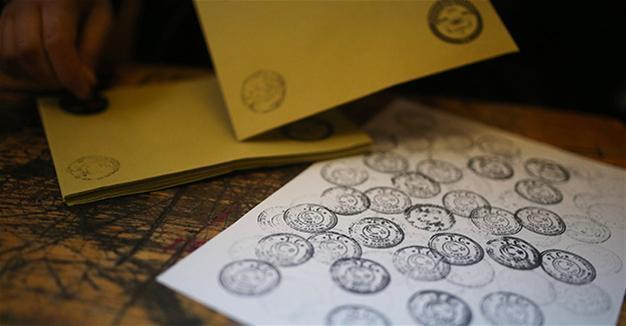Turkey’s main opposition determines 11 alleged voting irregularities in referendum
Rifat Başaran – ANKARA

AP photo
The main opposition Republican People’s Party (CHP) has determined a total of 11 alleged voting irregularities in the April 16 constitutional referendum on shifting Turkey to an executive presidential system.The last-minute decision of the Supreme Election Board (YSK) to accept unstamped ballot papers as valid is included in the CHP’s report of alleged irregularities, prepared based on the applications of polling clerks in the first two days after the vote.
The YSK decision to accept unstamped ballot papers “unless it can be proven that they were brought from outside the voting room” sparked a major debate on the results of the referendum, in which the “yes” campaign narrowly emerged as the winner with 51.4 percent of the votes.
Commenting on the list, CHP deputy leader Erdal Aksünger said the vote marked the “first time I have ever witnessed such major irregularities.”
According to the report, which the party will also present to the OSCE, the most flagrant violation was the acceptance of unstamped envelopes and ballot papers. The report also noted that stamps stating “yes” rather than “preference” were used in a number of ballot boxes.
After the main opposition carried the allegations to the YSK, Aksünger claimed that officials at the board greeted the application by laughing and saying “No way.”
Aksünger said the CHP had received many complaints regarding the lack of ballot papers sent to ballot boxes, noting that the number of ballot papers must be more than the number sent with their backups.
Another claim included in the CHP’s report concerned the voting process in the east and southeast, where citizens reported numerous irregularities that have also been voiced by the Peoples’ Democratic Party (HDP). According to the report, observers at a number of ballot boxes in the region were prevented from attending by the security forces and the ballot boxes were left idle.
The CHP also said security forces had intervened in the open counting of the votes by closing the doors and not allowing citizens to watch the process.
“Village heads, mayors, security forces and district governors put pressure on the people in order to prevent ‘no’ votes from prevailing,” the report read, adding that “yes” and “no” votes were switched in some voting reports and over 10,000 report mistakes had been determined until now.
The CHP also noted that votes were cast in place of workers on duty in a number of provinces, while in some locations in the east and southeast the security forces made people cast their votes openly.
Another irregularity cited in the report is the fact that only “yes” votes emerged from a total of 960 ballot boxes, mostly in the east and southeast, where opposition observers were not allowed to monitor the ballot boxes.
The final alleged irregularity was cited as the surplus of votes cast in some ballot boxes compared to the number of registered voters in the neighborhood. The CHP said it determined this situation in a total of 2,645 ballot boxes, 669 of which had a very large difference between the numbers.
One example cited in the report said a total of 190 votes were cast one a ballot box in Istanbul, when in fact there were only 12 registered voters. When asked about the reason for this discrepancy, the authorities said security forces had cast votes in that ballot box, which prompted the CHP to try to determine the identities of those security forces.
















